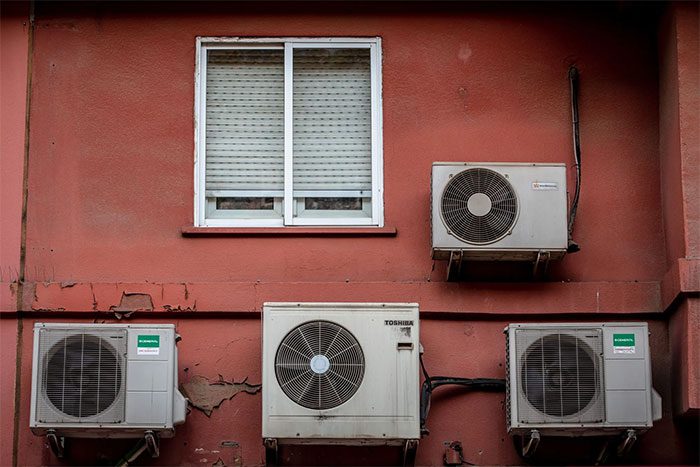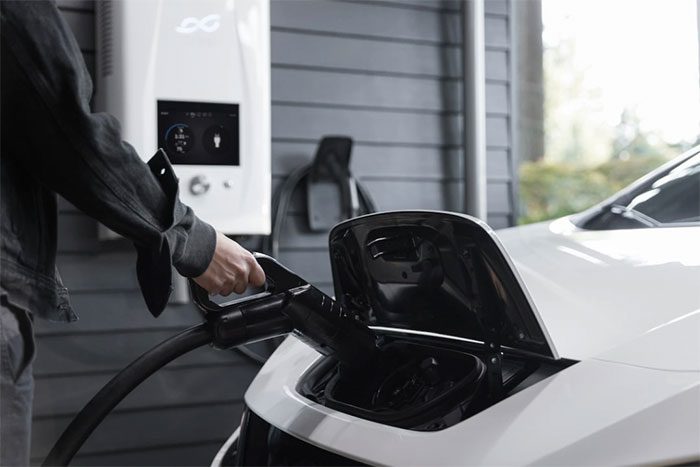In this wealth-rich country, air conditioning is not banned but must go through complex procedures before it can be used.
In the list of the top 10 wealthiest countries and territories in the world in 2023, Switzerland ranks third with a per capita GDP of over $94,000, following Luxembourg and Ireland. Not only is it famous for being one of the richest countries in the world, known for luxury watches, prestigious banks, and advanced education, but this Nordic country also holds many other fascinating aspects that you may not know.
1. No Air Conditioning
Often referred to as the “park of the world”, Switzerland attracts a massive influx of tourists each year. However, upon arriving, many visitors quickly realize that this Nordic country does not have air conditioning units installed in its cities. This raises the question: Why? Is it because the weather here is cool year-round, rendering air conditioning unnecessary?

Swiss people do not use air conditioning even when the weather is hot. (Photo: Internet).
In reality, while temperatures in most regions of Switzerland are relatively mild, they can still rise during the summer months. Nevertheless, the installation of air conditioning units is not encouraged in this country for a very simple reason: to protect the environment.
The Swiss believe that using air conditioning increases carbon dioxide emissions, which are already high due to modern appliances. Moreover, the freon and other harmful gases emitted from air conditioning can damage the ozone layer in the atmosphere and the environment. Therefore, regardless of how hot it gets, locals prefer to use electric fans or traditional hand fans to stay cool rather than opting for air conditioning.

The Swiss government and citizens are particularly concerned about environmental issues. (Photo: Internet).
Additionally, installing air conditioning in Switzerland is more complicated than in other countries because it involves navigating numerous bureaucratic procedures and regulations that vary by canton. Among them, Geneva is the strictest.
The Swiss government and citizens pay special attention to environmental issues. In this country, the use of devices that impact the environment is often prohibited. Therefore, it is not surprising that statistics show that air quality in Switzerland consistently ranks among the best in the world.
2. Plans to “Ban” Electric Cars
When it comes to environmental issues, Switzerland can be seen as a model. To minimize adverse effects on the surrounding environment, very few people in Switzerland purchase and use cars. Everyone tries to walk as much as possible when going out or chooses to take buses and subways to limit emissions.

Swiss citizens try to walk as much as possible when going out. (Photo: Internet).
Moreover, Switzerland is also planning to ban electric cars while the electric vehicle movement is booming worldwide. According to The Telegraph, Switzerland’s restriction on the use of electric cars in the future is to prepare for the impacts of energy shortages. Officials have drafted a proposal to limit electricity usage to prevent blackouts and power cuts.
According to The Economic Times, Switzerland relies heavily on hydropower to meet its energy needs, with about 60 percent of the country’s energy coming from hydroelectric sources. However, this country still needs to import electricity from France and Germany. It is not the only country in Europe currently seeking to reduce energy consumption.

Switzerland is also planning to ban electric cars. (Photo: Internet).
According to the proposal, the country also has plans to restrict energy usage in buildings and may even ban concerts, stage performances, and sporting events to limit electricity consumption. If implemented, Switzerland will be the first country in the world to have measures limiting electric cars.
3. Preference for Cash Payments
Currently, many payments worldwide have gone digital. However, cash remains a primary payment method in Switzerland.
According to Citech.com, a study published on February 16 by the University of St. Gallen and ZHAW shows that after Covid-19, cash is the most widely used payment method in Switzerland. The study results indicate that 29% of daily transactions in Switzerland are made in cash, while debit card payments account for 27% and credit cards 18%.

Cash is the most widely used payment method in Switzerland. (Photo: Internet).
The study also found that cash payment habits differ among various age groups. Those under 30 use cash for 28% of their transactions, while this figure is 24% for those aged 30 to 44 and 38% for those over 60.
Commenting on the Swiss preference for cash despite the global trend towards digital banking, payment expert ZHAW Marcel Stadelmann suggested: “A plausible explanation for this is that people fear the energy crisis anticipated for this winter, so many may wish to protect themselves by increasing their cash reserves.”


















































